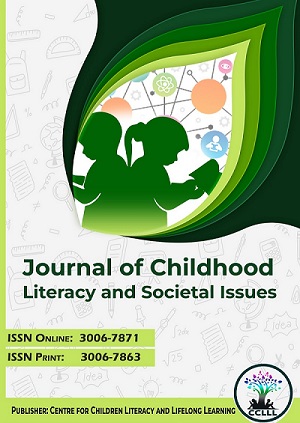Family related Factors affecting Reading Skills and Intellectual Growth among Children
DOI:
https://doi.org/10.71085/joclsi.02.01.27Keywords:
Leisure reading, Family Involvement, Parents’ Support, Academic AchievementAbstract
This review delves into the intricate interplay between family dynamics and children's reading proficiency and intellectual growth. In recent decades, researchers have increasingly recognized the pivotal role of familial environments in shaping children's cognitive development, particularly in the realm of literacy acquisition. Drawing upon a wide array of scholarly literature, this paper synthesizes existing research to elucidate the multifaceted influences exerted by family-related factors on children's reading skills and overall intellectual advancement.The review identifies and examines various dimensions of family life that impact children's reading abilities, encompassing parental involvement in literacy activities, the quality of parent-child interactions, socioeconomic status, family structure, parental education level, and cultural factors. Additionally, it scrutinizes the significance of home literacy environments, including access to books, reading materials, and conducive learning settings, in fostering children's language acquisition and cognitive development.
Downloads
Downloads
Published
Issue
Section
License

This work is licensed under a Creative Commons Attribution-NonCommercial-NoDerivatives 4.0 International License.
This work is licensed under a Creative Commons Attribution-NonCommercial-ShareAlike 4.0 International License.
The Creative Commons-Attribution-Noncommercial-Share Alike License 4.0 International applies to all works published by Journal of Childhood Literacy and Societal Issues. Authors will retain copyright of the work.





